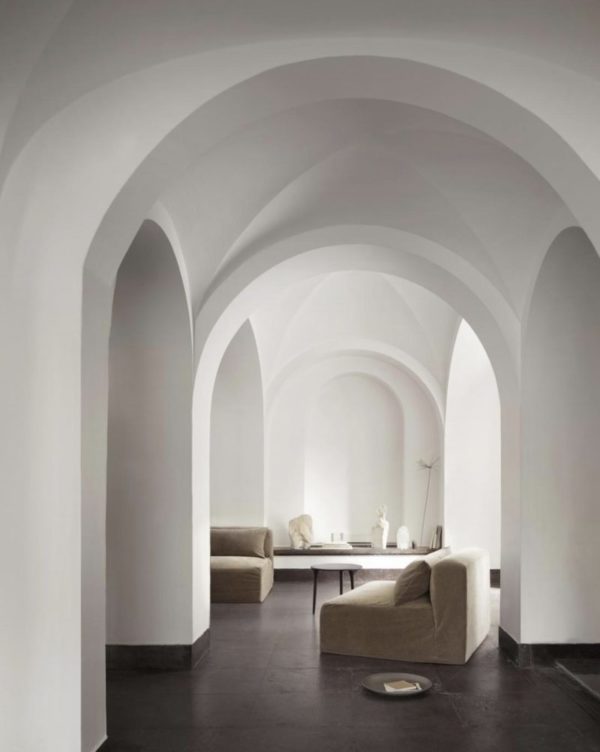The ancient Chinese spatial laws of feng shui have gone full-on mainstream, with Gwyneth Paltrow and Marie Kondo among its enthusiasts. To the uninitiated, feng shui can feel a little esoteric, but if you take the time to dig into the philosophy behind it, you’ll find that it’s not only based on simple common-sense practices that make our homes healthier and more organized, but it also reveals how connected we are to our homes—and in turn, how they can affect our mood and well-being.
What Is Feng Shui?
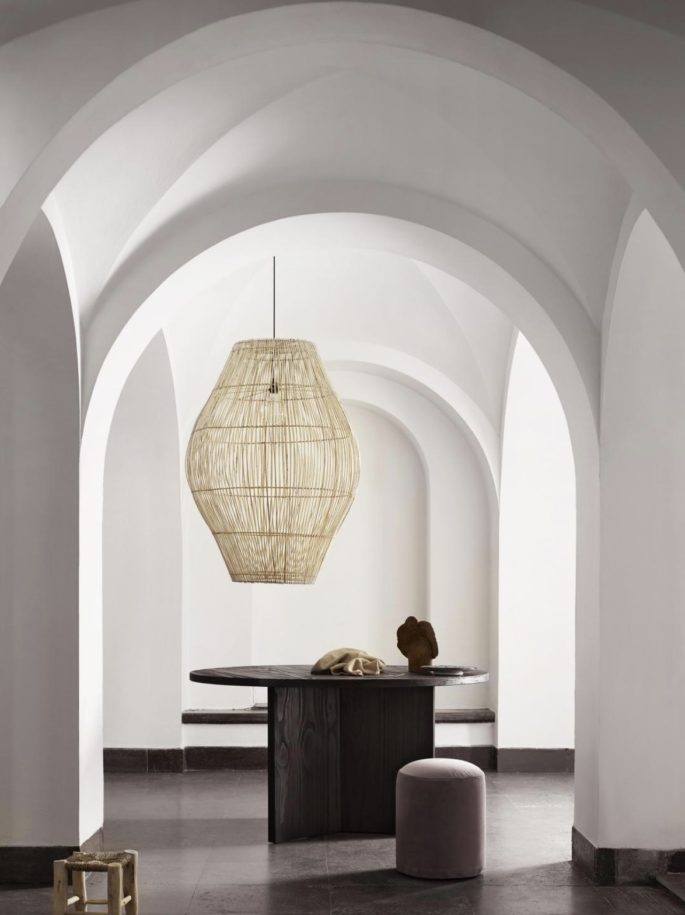
Image via TineK Home Mood 2020 Catalogue
Feng shui is the Chinese practice of trying to create balance with the natural world in our interior spaces. It uses energy forces to create harmony between an individual and their environment. Good feng shui means being in harmony with nature, your home, your mind and your soul.
We are all searching for something beyond functionality. Feng shui is used to teach you how to live your life In pursuit of harmony, abundance and wellbeing, using a set of Chinese guidelines for the best positioning of everything from walls to windows within a home. While we like the concept of it, we’ve often found it unduly complicated to follow. And when starting with a house that’s fully built, or a rental with restrictions on what you can do, it’s usually impossible, or plain silly, to contemplate moving stairs or realigning doors.
Of course, many of the diktats of feng shui do not involve structural alterations, and much of it can be read as common sense with no requirement for complex Chinese algorithms or knowledge of the precise orientation of your abode.
The main goal of feng shui is simply the free flow of positive energy or ‘chi’ as well as the clearing away of anything that might block that flow.
It really just means “wind and water’ and while becoming broadly popular here in the 1980s, after relations between China and the United States opened up, today it is used for everything from decorating nurseries to selecting burial plots.
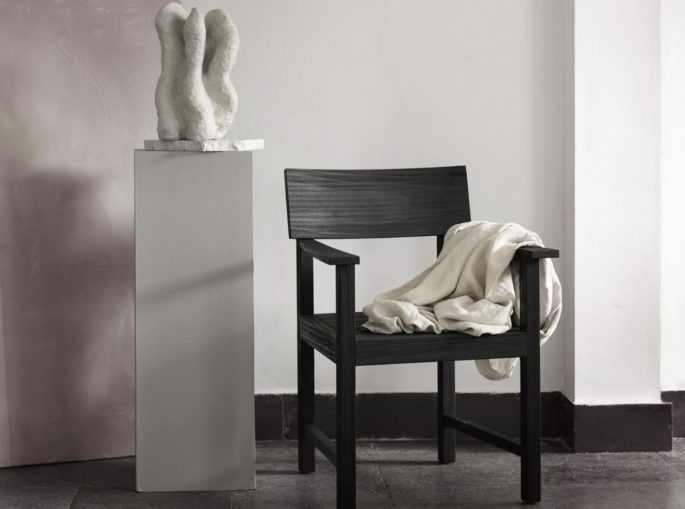
Image via TineK Home Mood 2020 Catalogue
Some of it seems like plain common sense. The concept of yin and yang was a reminder that rooms need a balance — of rounded and straight-edged objects, for instance — and never too much of a single colour or pattern, although some rooms might call for more yin than yang, and vice versa. A home or place of work should not be overly cluttered.
But while many of us declutter to foster an atmosphere of calm, not to mention make it easier to keep track of things, feng shui says that clearing out extraneous stuff will help welcome the chi, or cosmic energy.
Chi almost feels like a character you want to invite into your home and encourage to hang around.
Wall sconces can be used to slow down the chi that otherwise might speed down a long hall, bypassing important stops. My biggest takeaway from feng shui practice is the idea of the “command position,” which enables you to see the doorway of a room without being directly in line with it (if your bed is in line with the door it is called, scarily, the “coffin” position, named for the way the deceased are often carried out).
The command position gives you a feeling of control and empowerment.
It’s all about water, wood, fire, earth, metal, and how they relate to landscapes, houses, and rooms, pointing out arrangements that adhere to the tenets of feng shui “adjustments” that can be employed where spaces fell short – and identifying the zones of each corner.
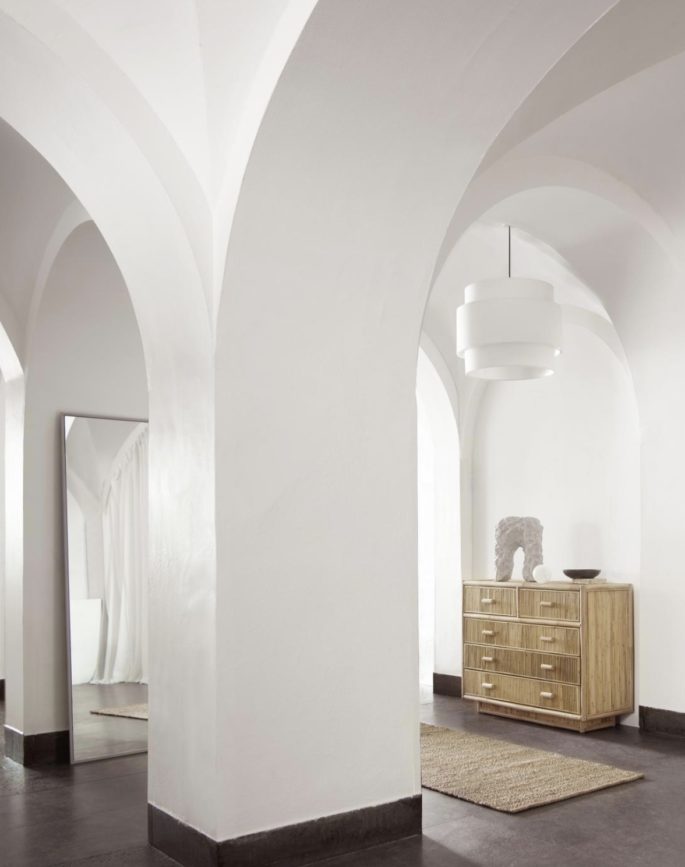
Image via TineK Home Mood 2020 Catalogue
There are always workarounds to compensate for problematic features, such as beamed ceilings, which many of us consider charming but, apparently, can exert “downward pressure” that could be damaging to a relationship or impact health.
We don’t suggest embracing some of the remedies such as hanging bamboo flutes (on beams), crystals (to fix a confusing or tight spot on a floor plan) or red paper firecrackers (to prevent burglary and accidents) — others were easier to envision.
Careful placement of a mirror turned out to be a solution in so many situations that it is reportedly called “the aspirin” of feng shui.
An empty apartment in a high-end building would not sell until the real estate agent added a piece of art incorporating the fire element and some greenery representing the wood element; once the agent hung a Georgia O’Keeffe poppy and strategically placed an umbrella plant, the place sold immediately.
Below, some of the basic principles of Feng Shui, the ancient Chinese ritual that’s considered superstition by some — and big business by others:
A FENG SHUI CHECKLIST:
1. A bedhead protects your head from a fast flow of energy. And importantly position your bed where you can best see the door.
2. Plants with round leaves are soothing.
3. Don’t have a mirror facing you while you sleep because mirrors reflect your own chi, or “energy force,” at you while you sleep and block you from getting rid of past emotions.
4. Avoid sitting or sleeping with sharp-cornered furniture or jutting walls facing you because they aim so-called poison arrows at you; one cure is to hang a crystal between the edges and you.
5. Make a clutter-free environment to let the chi move easily.
6. Synthetic clothing and bedding that generates static electricity can interfere with the electromagnetic balance of the body.
7. Mirrors are sometimes called “the aspirin of Feng Shui,” they’re so often used for cures; for example, put a mirror in your “wealth quadrant” to double your money.
8. A Ceiling fan over your bed is bad.
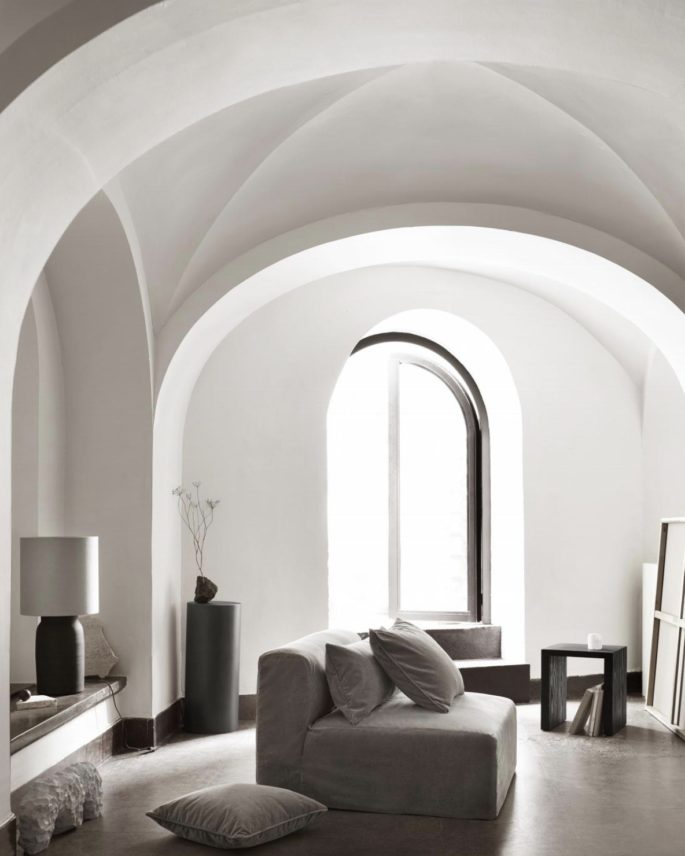
Image via TineK Home Mood 2020 Catalogue
9. Towering open bookshelves in a bedroom crammed with books is bad.
10. A desk pushed against a wall in the living room so your back is to the doorway is bad.
11. A diagonal wall in a bedroom that means a section is missing from the “wealth” zone (which might just explain something about your family’s finances) = very, very bad.
12. “Fighting doors” are bad (a bedroom door that knocks against your wardrobe door when both are open) can cause discord or even “hidden adversaries.” Yikes.
13. Sitting at a desk that faces the wall is less than ideal. You can’t be in the “command position” at the stove, with your back to the doorway.
14. A direct line-of-sight between the front door and the back door is bad. It means the chi (or energy) is shooting through the house too fast. Slow the chi down with a patterned rug on the floor, artwork on the walls, or even a round entry table.
15. A badly-lit front door is to be avoided. Your entry is the main portal through which energy enters your home. You want to make sure it’s clearly lit, well-marked, and the address visible. On the inside, you want to make sure you’re not walking directly into a wall—it can metaphorically make you feel like you’re up against a wall every day. Install a mirror and when you hang it – connect an intention to it, like expanding the opportunities in your life.

